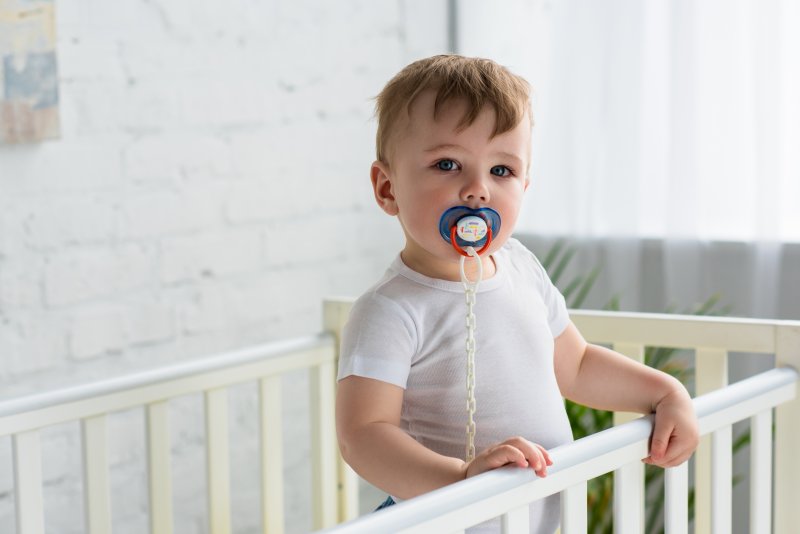
As your child grows, they’ll reach all kinds of milestones. Going to kindergarten, graduating from school, maybe even going off to college—one of the greatest privileges of being a parent is getting to be there for these moments.
However, your child may be more excited about some milestones than others. If you have a toddler or young child, you might have heard that it can be bad for their teeth’s development for them to suck on a pacifier past a certain age. That said, getting some kids to stop is much easier said than done. Here’s what you should know about the effect of pacifiers on kids’ oral health, and how you can wean them off of one.
What Can Happen If a Child Uses a Pacifier for Too Long?
First of all, it’s important to understand what can happen if sucking habits, like pacifier use, are allowed to continue past a certain age. Of course, it isn’t a problem for babies and toddlers to use a pacifier; some research suggests it could even stave off conditions like SIDS.
However, when your child’s jaw begins to grow, it can potentially form itself around their thumb pacifier. That can lead to something called an open bite, a condition where the front teeth don’t meet.
At What Age Should My Child Stop Sucking A Pacifier?
Often, dentists will recommend that you wean your child off of sucking habits around the age of 2, but that may be too young for some children. Other organizations, like the American Academy of Pediatrics, say that 3 or 4 is a more appropriate goal, with 4 being when the efforts to wean your child off of the pacifier ought to ramp up.
How To Get Your Child to Stop Using Their Pacifier
If your child overuses a pacifier, there are a few things you can try to get them to stop, you could try poking a hole in their favorite one. They’ll still have the comfort of having their favorite pacifier but probably won’t get the same sensation from it, making it easier to get them to stop. You could also encourage them to give their pacifier to a younger child, to give them the feeling of having grown up a little bit.
Of course, the best way to reward a child for good behavior will vary, and you know your child better than anyone else. Hopefully, this guide gave you at least a few ideas for how to approach this situation.
About the Author
Dr. Moji Chandy is a dentist who is deeply committed to her craft. Not only does she constantly stay up-to-date about what’s happening in her field, but she applies her expertise with a level of care and compassion that can put her patients at ease. Dr. Chandy received her Doctor of Dental Surgery from the NYU College of Dentistry, and she is an active member of the Academy of General Dentistry.
If you have any questions about helping your child to break a pacifier habit, she can be reached at her website or by phone at (972) 492-6700.

